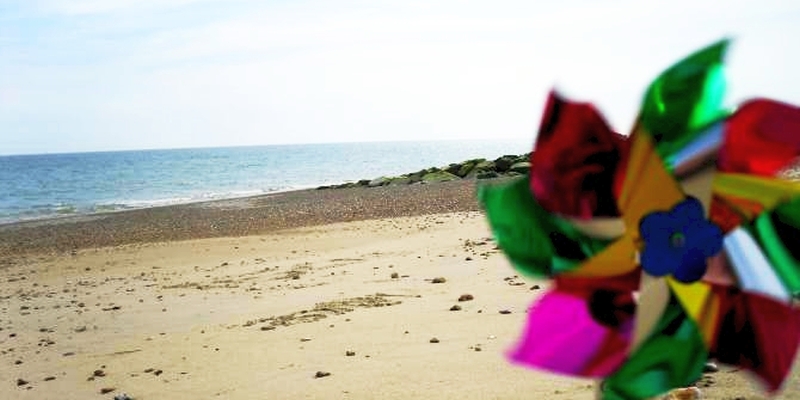
RNLI urges beach-goers to stay safe this summer
With school summer holidays approaching, and following an increase in beach incidents last year, the Royal National Lifeboat Institution (RNLI) is calling on anyone planning a beach visit to put safety first, to help keep themselves and their families safe during trips to the seaside.
Last year, RNLI lifeguards responded to 16,664 incidents, helped 18,779 people and saved 107 lives on some of the UK’s busiest beaches, while the charity’s volunteer lifeboat crews launched to 1,324 beach-related incidents, rescuing 916 people and saving 70 lives. This meant the average number of lifeguard incidents per beach increased by 15% on the previous year, while the number of beach-related lifeboat launches went up by a vast 48%.
Despite this increase, research* has shown that safety is not a top influencing factor for people when deciding which beach to visit. Most popular reasons for beach choice are: visited before (36%), closeness (23%), clean beach/sea (20%), good surf (15%), and regular choice (10%). Only 4% of people chose a beach because of the lifeguard presence.
The charity is encouraging anyone planning a trip to the beach – but particularly families and those with young children – to make safety a priority. Last year, children accounted for nearly two-thirds (62%) of incidents RNLI lifeguards dealt with.
Surf sports (including surfing, bodyboarding, kitesurfing and windsurfing), swimming and inflatable toys are consistently among the top activities requiring lifeguard assistance and beach-related lifeboat launches.
To help people remember their seaside trips for the right reasons, the RNLI is offering the following top five beach safety tips:
1. Swim at a lifeguarded beach, between the red and yellow flags
2. Never use inflatables in strong winds or rough seas
3. Check tide times before you go
4. If you get into trouble, stick your hand in the air and shout for help
5. If you see someone else in trouble, tell a lifeguard. If you can’t see a lifeguard, call 999 or 112 and ask for the Coastguard.
For those who can’t make it to a lifeguarded beach, the charity’s advice is as follows:
1. Find out about your chosen beach before you go at goodbeachguide.co.uk
2. Check weather and tides before you go
3. Read the safety signs at the beach entrance to make yourself aware of specific local hazards
4. If you get into trouble, stick your hand in the air and shout for help
5. If you see someone in trouble, call 999 or 112 and ask for the Coastguard but don’t attempt a rescue yourself
Ross Macleod, RNLI Beach Safety Programmes Manager, says:
‘For those planning a trip to the beach, the RNLI’s advice is to choose a lifeguarded beach and swim between the red and yellow flags, which is the area most closely monitored by the lifeguards.
‘For anyone who can’t get to a lifeguarded beach, there are some straightforward steps they can take to help keep themselves out of danger. They can find out about their chosen beach before they visit, check the weather and tide times, and follow the advice shown on safety signs at the beach entrance. By following this basic advice, we hope people will have a great time but stay safe as well.’
The RNLI’s has two beach safety guides which are available free-of-charge. The first, On The Beach, is aimed at families and is packed full of top tips on how to stay safe at the beach, as well as ideas for games to play on the beach. The second, In The Surf, includes vital safety and kit information for popular surf sports. Both guides are available from [email protected] or by calling 0800 328 0600.
For more information visit www.rnli.org.uk/beachsafety.
* Prescient research conducted on behalf of RNLI, September 2010.





